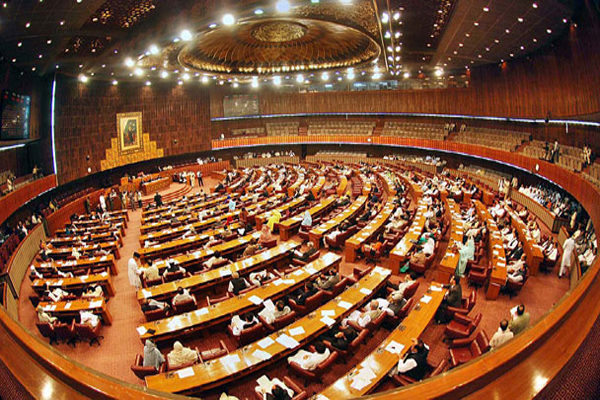The National Assembly passed the Off the Grid (Captive Power Plants) Levy Bill, 2025, through a supplementary agenda and without any debate. The bill, which aims to provide a legal foundation for the grid levy on the supply of natural gas or imported liquefied natural gas (LNG) to industrial captive power plants (CPPs), was introduced by Minister for Petroleum Division Ali Pervaiz, Dawn reported.
The bill, introduced after the House suspended its rules, swiftly passed through all required stages in one day, just ahead of the presentation of the federal budget for the next fiscal year.
According to the report, the bill’s passage comes on the heels of the May 17 approval of the Income Tax (Amendment) Bill 2024.
It was presented following a report from the Standing Committee on Petroleum, chaired by Mustafa Mehmood, who had approved the bill in a meeting held minutes before the National Assembly session.
While the opposition challenged the ruling allowing the bill to be presented for passage, it faced a 99-44 vote defeat following a headcount.
During the Standing Committee on Petroleum meeting, Minister Pervaiz provided a detailed briefing on the Captive Power Levy Bill, explaining its importance in fulfilling Pakistan’s commitments under the International Monetary Fund’s (IMF) Extended Fund Facility (EFF).
Pervaiz noted that the phase-out of captive power generation had been under consideration for some time, but its implementation had been delayed due to political and economic challenges. He emphasised that the goal of transitioning industries from captive power systems to the national grid was to optimise surplus electricity generation, improve efficiency in the power sector, and reduce financial pressures on the economy.
The minister assured the committee that the bill was crafted with input from a comprehensive consultation process and that protections for the industrial sector had been included to prevent disruptions to industrial operations. He also highlighted high electricity prices as a concern and stressed the need to meet public demand through grid supply.
The government had already implemented the policy through an ordinance earlier this year, which included a 23% increase in gas rates for industrial CPPs in March.
The ordinance was set to expire, making it necessary for the government to secure parliamentary approval for the policy. Since it is a money bill, it did not require approval from the Senate, though the Senate’s finance committee did approve the bill on May 16 without offering any recommendations.




